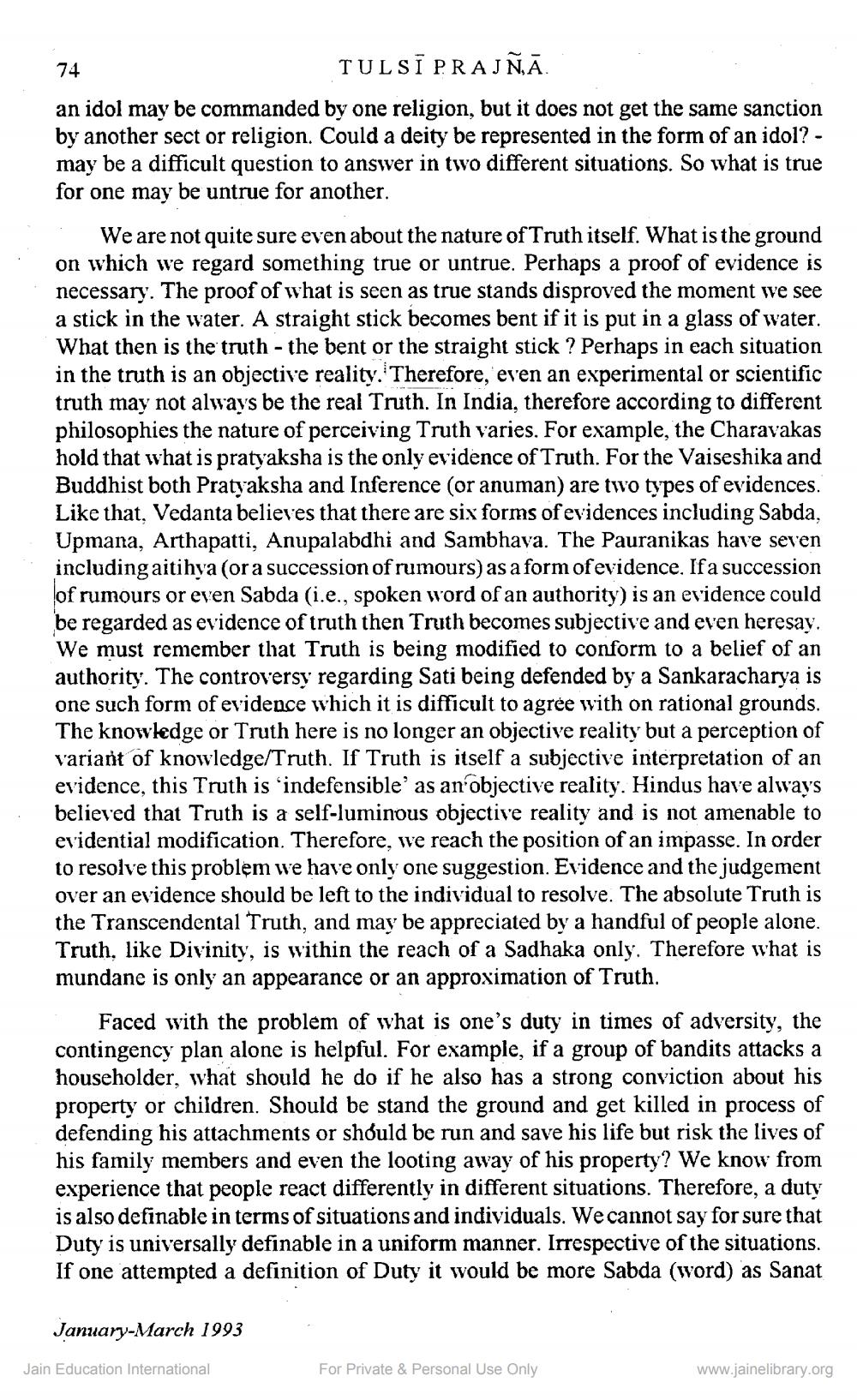________________
74
TULSI PRAJÑ‚Ā.
an idol may be commanded by one religion, but it does not get the same sanction by another sect or religion. Could a deity be represented in the form of an idol? - may be a difficult question to answer in two different situations. So what is true for one may be untrue for another.
We are not quite sure even about the nature of Truth itself. What is the ground on which we regard something true or untrue. Perhaps a proof of evidence is necessary. The proof of what is seen as true stands disproved the moment we see a stick in the water. A straight stick becomes bent if it is put in a glass of water. What then is the truth - the bent or the straight stick? Perhaps in each situation in the truth is an objective reality. Therefore, even an experimental or scientific truth may not always be the real Truth. In India, therefore according to different philosophies the nature of perceiving Truth varies. For example, the Charavakas hold that what is pratyaksha is the only evidence of Truth. For the Vaiseshika and Buddhist both Pratyaksha and Inference (or anuman) are two types of evidences. Like that, Vedanta believes that there are six forms of evidences including Sabda, Upmana, Arthapatti, Anupalabdhi and Sambhava. The Pauranikas have seven including aitihya (or a succession of rumours) as a form of evidence. If a succession of rumours or even Sabda (i.e., spoken word of an authority) is an evidence could be regarded as evidence of truth then Truth becomes subjective and even heresay. We must remember that Truth is being modified to conform to a belief of an authority. The controversy regarding Sati being defended by a Sankaracharya is one such form of evidence which it is difficult to agree with on rational grounds. The knowledge or Truth here is no longer an objective reality but a perception of variant of knowledge/Truth. If Truth is itself a subjective interpretation of an evidence, this Truth is 'indefensible' as an objective reality. Hindus have always believed that Truth is a self-luminous objective reality and is not amenable to evidential modification. Therefore, we reach the position of an impasse. In order to resolve this problem we have only one suggestion. Evidence and the judgement over an evidence should be left to the individual to resolve. The absolute Truth is the Transcendental Truth, and may be appreciated by a handful of people alone. Truth, like Divinity, is within the reach of a Sadhaka only. Therefore what is mundane is only an appearance or an approximation of Truth.
Faced with the problem of what is one's duty in times of adversity, the contingency plan alone is helpful. For example, if a group of bandits attacks a householder, what should he do if he also has a strong conviction about his property or children. Should be stand the ground and get killed in process of defending his attachments or should be run and save his life but risk the lives of his family members and even the looting away of his property? We know from experience that people react differently in different situations. Therefore, a duty is also definable in terms of situations and individuals. We cannot say for sure that Duty is universally definable in a uniform manner. Irrespective of the situations. If one attempted a definition of Duty it would be more Sabda (word) as Sanat
January-March 1993
Jain Education International
For Private & Personal Use Only
www.jainelibrary.org




